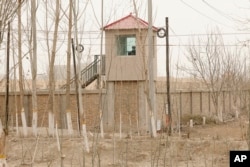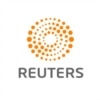SHANGHAI – American human rights and trade groups on Tuesday blew up Tesla’s New Year’s announcement that they had opened a showroom in Xinjiang, the latest foreign company caught up in tensions related to the Chinese region in the far west, where internment camps have been widely criticized.
The Council on American-Islamic Relations, the United States’ largest Muslim advocate, said Tesla “supports genocide”. Similar criticism came from a US trade group, the Alliance for American Manufacturing and US Senator Marco Rubio.
“Elon Musk must close Tesla’s Xinjiang showroom,” the Council on American-Islamic Relations said on its official Twitter account, referring to Tesla’s founders.
Xinjiang has become a major point of contention between Western governments and China in recent years. UN experts and rights groups estimate that more than a million people, mainly Uighurs and members of other Muslim minorities, have been imprisoned in camps there.
US President Joe Biden and members of the US Congress have pressured companies to distance themselves from Xinjiang. On December 23, Biden signed a bill that prevents the import of goods manufactured in the region.
White House spokeswoman Jen Psaki said she would not comment directly on Tesla’s actions, but in general “the private sector should oppose China’s human rights abuses and genocide in Xinjiang,” she said. “The international community, including the public and private sectors, can not look the other way when it comes to what is happening in Xinjiang.”
The United States has branded China’s treatment of ethnic Uighurs and other Muslims in Xinjiang genocide. The United States and some other countries are planning a diplomatic boycott of the Beijing Winter Olympics in February because of the issue.
China has denied allegations of forced labor or other abuses there, saying the camps provide vocational training and that companies should respect its policies.
 FILE – A security guard watches from a watchtower around a detention facility in Yarkent County in northwestern China’s Xinjiang Uyghur Autonomous Region, March 21, 2021.
FILE – A security guard watches from a watchtower around a detention facility in Yarkent County in northwestern China’s Xinjiang Uyghur Autonomous Region, March 21, 2021.
Tesla, the world’s most valuable carmaker, announced on December 31 that it would open a showroom in Xinjiang’s regional capital, Urumqi.
“On the last day of 2021, we will meet in Xinjiang,” said Tesla in a post on their official Weibo account.
Other American and European carmakers or their Chinese partners have showrooms in Urumqi, a city of about 3 million people. The German car manufacturer Volkswagen AG has a car factory near Urumqi.
Tesla did not immediately respond to a request for comment on this story. The car manufacturer operates a factory in Shanghai and increases production there with rising sales in China. China has also become an export hub for Teslas on its way to Europe and other markets.
Musk last year had to level the playing field with Chinese authorities after Teslas was banned from state-owned real estate due to concerns that data collected by the vehicles’ cameras would be transferred from China.
A number of foreign companies have in recent months been stumbled by tensions between the West and China over Xinjiang, as they try to balance Western pressure with China’s importance as a market and supply base.
“There is this tension between global investors and the Chinese government. Global investors want access to the market. And the Chinese government says the cost of access is acceptable,” said Michael Dunne, CEO of Zo Zo Go, an investment adviser working on vehicles. and technology companies doing business in China.
In July, Swedish fashion retailer H&M reported a 23% drop in sales in local currency in China for the March-May quarter after being hit by a consumer boycott in March to publicly state that they did not buy products from Xinjiang.
Last month, US chipmaker Intel faced similar calls after telling its suppliers not to buy products or labor from Xinjiang, prompting it to apologize for “the problem caused by our respected Chinese customers, partners and the public.”
Although some have tried to reduce their supply chain exposure to the region, especially since Washington bans imports such as Xinjiang cotton and blacklists Chinese companies that they say have helped Beijing’s policy there, many foreign brands operate stores there.
-


Reuters
Subscribe
